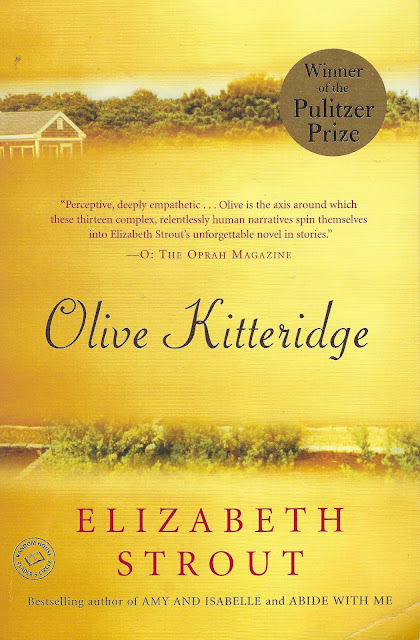In a short prologue, the Burgess family is introduced, focusing mainly on the two boys, Jim and Bob. They both have legal careers and left their home town of Shirley Falls, Maine, to pursue their careers. Bob has always been the lesser brother, the one who plods along but did not succeed spectacularly like his older brother. But he also is the one who every one likes, who is nice and kind and thinks well of people.
Then an incident happens in Shirley Falls, Maine, where Susan, their sister, still lives. Susan's nineteen-year-old son, Zach, commits a crime and the Burgess boys feel like they have to go back to their home town to help her. Jim is going on a vacation with his wife and another couple and he drafts Bob to go and help. But Bob doesn't handle the situation very well and Jim is bent out of shape.
I like books about families and this is a very unusual family. There is a tragedy in their past which has affected all of the relationships in the family. The children's father was killed when they were all under ten years of age; although he was only four years old at the time, Bob was blamed for his father's death and it has affected his self-image, to put it mildly. The dynamics within the family are strange. Jim, the older brother, is needlessly cruel to his brother, taunting him mercilessly. Most of the time this just rolls off of Bob. Susan is Bob's twin, but she is also often disparaging of Bob and his abilities.
The rest of the story is about how Zack's problems are handled, and the effects these events have on all of their lives.
My thoughts:
- I liked how parts of the story are told from the point of view of characters outside the main family: Abdikarim Ahmed, a member of the Somali community in Shirley Falls, who testifies against Zack at his hearing; Bob's ex-wife, Pam, who left him because they could not have children; and Helen Burgess, Jim's wife, who is having problems with an empty nest after her children leave home.
- The majority of the characters in this book are unlikable, but I continued to be interested in reading about all of them. This was partly due to the author's writing style, but also because I was sure that I was going to learn more about them and be able to figure out why they were so disagreeable or unappealing.
- Coincidentally, the two fiction books I read prior to this one were kind of downers, and this one continued that trend. Unexpectedly, this book probably had a more optimistic outcome towards the end than those books. And certainly this one was more upbeat than the other books by Strout I have read (Olive Kitteridge, My Name is Lucy Barton, and Anything is Possible).
- This was a compelling read but not an easy read. My description above leaves so much out. That is intentional, so as not to spoil the reading experience. The novel is very rich with important themes and topics.
John Grant wrote a very detailed review of this book in 2019, which can be read either at his blog, Noirish, or on Goodreads.












